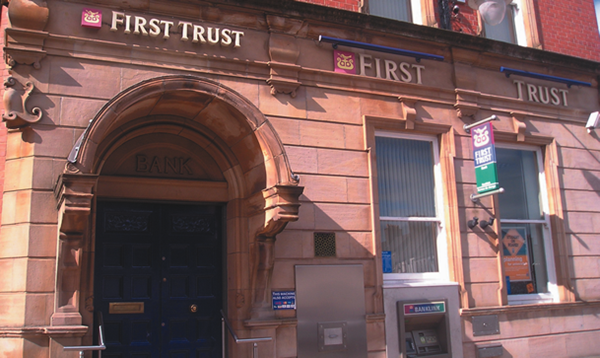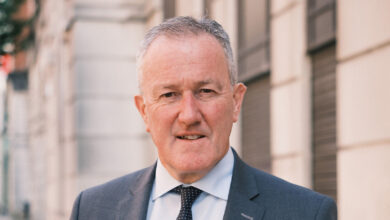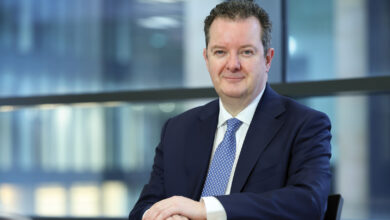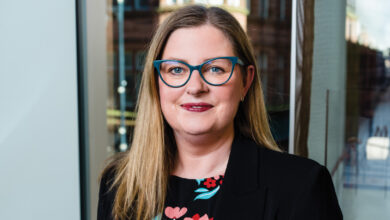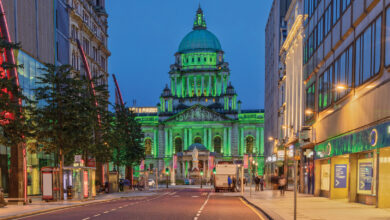Banks ‘holding up recovery’
Companies continue to criticise the limited cash supply from lending but banks question the level of demand.
Small businesses are reaching into savings or securing loans from relatives and friends, rather than banks, according to the FSB. The claim came as local banks and their parent groups reported major losses for the first six months of this year.
The losses occurred despite three banks benefitting from government bail-outs, and partly due to the banks putting aside large sums to cover potential defaults on bad loans. However, businesses say that lack of lending is holding up economic recovery.
Lending to companies has fallen sharply since the peak of the financial crisis in October 2008. Banks explain their caution by pointing to property developers not repaying loans, a major cause of the recession, and the need to consolidate their assets.
The UK Government sets policy on financial services in Northern Ireland but just one of the ‘big four’ banks has British ownership. The Ulster Bank’s parent group, the Royal Bank of Scotland (RBS), is itself 83 per cent owned by the taxpayer. Most of the Ulster Bank’s operations, though, are run from Dublin.
The Bank of Ireland is 36 per cent owned by the Irish Government, while the First Trust Bank is owned by Allied Irish Banks (AIB) but is currently for sale. The Irish state’s share in AIB is 18.6 per cent. The Northern Bank is owned by the Danishbased Danske Bank.
The Ulster Bank’s £314 million loss came as the RBS registered £9 million profits in the same period. The RBS had moved from a £248 million first quarter loss to a £257 million second quarter profit. AIB reported its worst pre-tax losses in the Republic, of just over €2.67 billion; the operating profit was €976 million.
The Bank of Ireland’s operations in Northern Ireland are part of its UK division. A massive loss (€1.25 billion) was reported for the entire bank, with profits at €553 million.
“Access to credit and faith in the banking system is crucial for economic recovery following such a prolonged period of downturn,” FSB spokesman Wilfred Mitchell told agendaNi. The small business-to-bank relationship, he claimed, has deteriorated over many years.
Despite bank assurances that lending to viable businesses is a top priority, FSB members told him that they still faced lending problems, as well as withdrawal of overdrafts, “exorbitant” charges and “unfavourable” changes to business account terms and conditions.
“A good start in bridging this divide could be the introduction of robust legislation that will ensure all banks will refrain from applying high charges and stringent conditions to otherwise reasonable requests for small amounts of money,” he recommended. “Punitive” interest rates and conditions mean that some businesses and instead used their own savings or loans from family and friends “and this is simply unacceptable.”
A British Bankers’ Association spokesman said that banks cannot risk their customers’ cash unless they are “absolutely sure” it will be returned. The Bank of England’s latest Trends in Lending report found that across the UK demand from small businesses for bank loans remained weak. Companies with debts were continuing to pay them down.
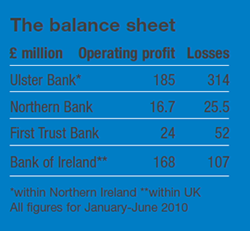 “Most of the debate about bank lending focuses on supply, rather than demand. In other words, it assumes the banks are reluctant to lend money, not that customers are in any way declining to borrow it,” he commented. “So while the official statistics are showing us that people and companies are – perfectly rationally – paying down their loans and not borrowing more than is necessary, there are calls from individual small businesses and their representatives for banks to make more available.”
“Most of the debate about bank lending focuses on supply, rather than demand. In other words, it assumes the banks are reluctant to lend money, not that customers are in any way declining to borrow it,” he commented. “So while the official statistics are showing us that people and companies are – perfectly rationally – paying down their loans and not borrowing more than is necessary, there are calls from individual small businesses and their representatives for banks to make more available.”
UK bank chief executives had come together to look at the “real and perceived” barriers for businesses and how those could be tackled. “When we have some concrete proposals,” he concluded, “we will be involving representatives from the small business community to ensure their views are heard.”

